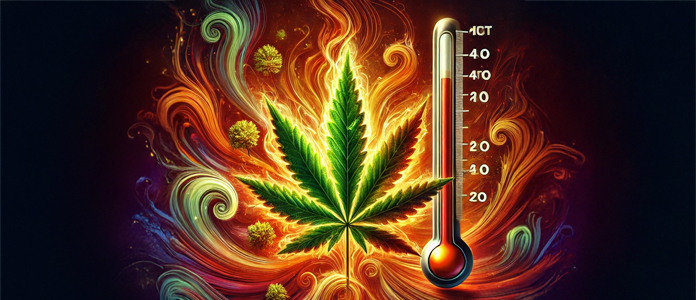Maintaining the right temperature in your grow tent is essential for healthy plant growth. Whether you’re battling winter chills or dealing with an unpredictable indoor climate, having a proper heating strategy ensures your plants thrive.
Why Proper Heating Matters
Plants have specific temperature needs to grow efficiently. Ideally, your grow tent should maintain:
- Daytime: 70°F – 85°F
- Nighttime: 5-10°F cooler than the daytime temperature
If temperatures drop too low, you risk stunted growth, poor nutrient absorption, and even plant death. This makes heating crucial, especially in colder climates or during winter months.
What to Consider Before Adding Heat
1. Grow Tent Size
- Small Tents: Heat up quickly but also lose heat faster.
- Large Tents: Require more powerful heating solutions for even warmth distribution.
2. Insulation
A well-insulated grow tent retains heat more efficiently, reducing the need for excessive heating. Consider:
- Reflective Mylar sheets to reflect heat back into the tent
- Foam boards around the exterior for added insulation
- Sealed seams to prevent heat from escaping
3. Ambient Room Temperature
The surrounding room’s temperature affects how much extra heat your grow tent needs.
- A warm room requires minimal heating
- A cold garage or basement needs a more powerful heating source
4. Ventilation & Airflow
Good airflow is essential to:
- Prevent hot spots
- Avoid overheating
- Maintain humidity levels
Balance heating with proper ventilation to distribute warmth evenly.
Best Heating Options for Your Grow Tent
1. Space Heaters – Ideal for Most Grow Tents
Electric space heaters are one of the most common solutions. Look for:
- Adjustable thermostats for precision temperature control
- Tip-over protection and automatic shut-off for safety
- A built-in fan to circulate heat evenly
2. Heating Mats – Best for Root Zone Warmth
If your tent is cold but the air temperature is manageable, heating mats provide targeted warmth at the root level. Benefits include:
- Gentle, consistent heat
- Better nutrient absorption
- Ideal for seedling and vegetative growth
3. Oil-Filled Radiators – Great for Large Tents
These heaters:
- Provide steady, radiant heat without drying out the air
- Are energy-efficient
- Maintain consistent temperatures, reducing temperature swings
4. Ceramic Heaters – Perfect for Small Tents
Compact and efficient, ceramic heaters offer:
- Quick heating with built-in fans
- Adjustable temperature settings
- A smaller footprint for limited space
5. Propane Heaters – Use With Caution
While propane heaters generate powerful heat, they:
- Require proper ventilation to prevent CO₂ buildup
- Can pose safety risks in enclosed spaces
- Are better suited for large, ventilated grow areas
Final Tips for Efficient Heating
- Monitor temperatures with a digital thermometer & hygrometer
- Use a thermostat-controlled heater to prevent overheating
- Seal gaps & improve insulation to retain heat
- Avoid placing heaters too close to plants to prevent burning
With the right heating strategy, your grow tent will stay at the perfect temperature—helping your plants thrive year-round.
Got questions or need recommendations? Drop them in the comments!


